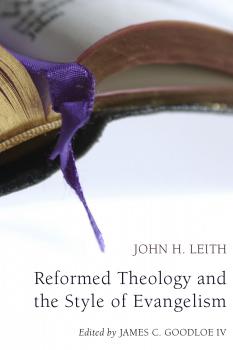ТОП просматриваемых книг сайта:
John H. Leith
Список книг автора John H. LeithАннотация
Dr. John H. Leith (1919-2002) enjoyed Christmas. He appreciated it especially as a celebration of the goodness of this world that God not only created but also, in the incarnation of Jesus Christ, entered, blessed with his presence, and redeemed. And at Christmas he especially wanted to be in contact with, and to minister to, those whom he loved, those whom he had taught, and those whom he cherished as colleagues in the Christian and Reformed ministry of preaching, teaching, and pastoral care.
This little book comprises a collection of Leith's Christmas letters to his former ministerial students at Union Theological Seminary in Virginia. The letters grew lengthier and richer through the years. We have gathered them here so that others may enjoy reading them also.
This little book comprises a collection of Leith's Christmas letters to his former ministerial students at Union Theological Seminary in Virginia. The letters grew lengthier and richer through the years. We have gathered them here so that others may enjoy reading them also.
Аннотация
The responsibility to bear witness to the gracious presence of God in Jesus Christ «in Jerusalem and in all Judea and Samaria and to the end of the earth» has been the perennial task of the Christian community from the beginning. But the style and form of evangelism has varied according to time and place. There is no one way of evangelism, as the history of Christians witnessing and confessing their faith makes very clear. The life of the Christian community has been and is enriched by a variety of evangelistic styles and by multiple theological confessions. There is, however, a limit to possible Christian theologies, and the preeminent theological task of the church is to test its proclamation by the word of God in Jesus Christ, as attested in scripture, to see that it is within the boundary. There is also a limit to the legitimate styles of evangelism. Some styles of evangelism corrupt and others strengthen the witness, but more significantly, style always betrays the real content. «There is an intimate but seldom seen connection between a person's thought and his style, which Alfred North Whitehead defined precisely as the 'ultimate morality of mind.'» The purpose of this paper is to relate Reformed theology to the form and style of evangelism. The paper presupposes that evangelism as shaped by Reformed theology is a valid and effective form of evangelism, but it does not presuppose that such form of evangelism is the only form that has validity or effectiveness. It is hoped that the proposal will be the occasion for self-criticism in the work of evangelism and for renewal of theological and ecclesiastical life in the Reformed tradition.


